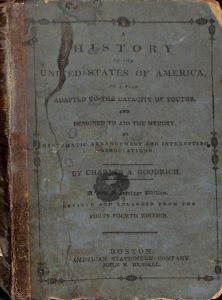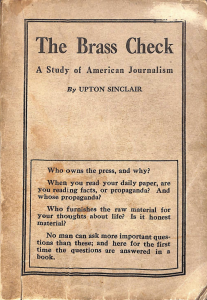Welcome!
Accessible History
FPP aims to make history accessible, accurate, and engaging for everyone, from scholars to casual researchers, by marrying history with emerging technologies.
Research Support
Our collection of 8,000+ books and 40,000+ documents have been digitized to be word-searchable and accessible by AI for research and educational purposes.
digital pioneers
Our Projects
Founded in 1993, FPP remains dedicated to providing historical instruction and information about the perennial truth and current significance of the first principles of America. FPP is the umbrella organization for two major projects: The Ronald D. Ray Library of American History and FPP Archive, both rooted in the vision of Colonel Ronald D. Ray.
Ronald D. Ray Library of American History
The Ronald D. Ray Library of American History is a dynamic project of FPP based on the book collection of Colonel Ronald D. Ray. The library aims to provide a resource as timeless as the Constitution and as forward-thinking as the Founding Fathers themselves. By applying AI technology, the library seeks to create an interactive experience where history comes alive.
The FPP Digital Archive
In 2006, First Principles began to move its extensive archive from filing cabinets to digital, preserving it from decay and making it accessible to people across the world. The FPP Digital Archive contains more than 40,000 supporting documents from FPP’s vast collection of primary source material, backgrounders, historical research and articles from 1993 to present.
Peek Into The Pages: Featured Books from the Library
This Week's Feature
Electricity for Engineers
By Charles Desmond
Copyright: 1898
Publisher: William Bradford
146 years ago, Thomas Edison demonstrated incandescent light and revolutionized the use of electricity in everyday American life.
In 2023 approximately 1,000 books on American science and technology during the 20th Century were donated and added to the Ronald D. Ray Library of American History from another private collection, thanks to the estate of Frank Lueke. This contribution complements our original collection with books on the historical significance of the early railroads, industrial and mechanical engineering, and one of Edison’s favorites: electricity.
Today’s Peek into the Pages features “Electricity for Engineers” by Charles Desmond, published just a few short years after Edison’s demonstration.
About "Peek into the Pages"
Welcome to our weekly feature “Peek Into the Pages” where we highlight a book from the Ronald D. Ray Library of American History! Our collection includes books under copyright and in the public domain. If available, we will share books from our collection here. Click below to see previously featured “Peek into the Pages” books.
Of Plymouth Plantation
Of Plymouth Plantation
By William Bradford
Copyright: 1898
Publisher: William Bradford
Before the Constitution, there was Plymouth Plantation.
Today’s Peek into the Pages features William Bradford’s Of Plymouth Plantation (1898 edition), a firsthand account of the Pilgrims’ journey across an ocean and into a covenant of self-government, faith, and liberty.
This book captures the foundations of American thought: courage, providence, and a commitment to freedom rooted in moral responsibility. At First Principles, we preserve and protect this history because the future of liberty depends on remembering where it began.
Available in the Public Domain – View Now!
A History of the United States of America
A History of the United States of America
By Charles A. Goodrich
Copyright: 1834
Publisher: American Stationers’ Company
This Peek into the Pages features one of the oldest books in our Library! Published in 1834, A History of the United States of America serves as a unique primary source that was written within 60 years of our nation’s founding. Now as we approach the 250th anniversary of the signing of the Declaration of Independence, resources like this book are vitally important to remember and retain the founders’ original intent and vision for America.
Handbook for American Citizens
Handbook for American Citizens
By Henry Mann
Copyright: 1895
Publisher: Louis Klopsch
Patton: Ordeal and Triumph
Patton: Ordeal and Triumph
By Ladislas Farago
Copyright: 1964
Publisher: Ivan Obolensky Inc.
The Marines
The Marines
Written by John De St. Jorre
Photographed by Anthony Edgeworth
Copyright: 1989
Publisher: Doubleday
The Brass Check
More Coming Soon
Check back soon for more featured books!
Start Researching Today
We look forward to hearing from you and assisting you with your research needs! Please allow 24-48 hours for a response from an FPP staff member.







